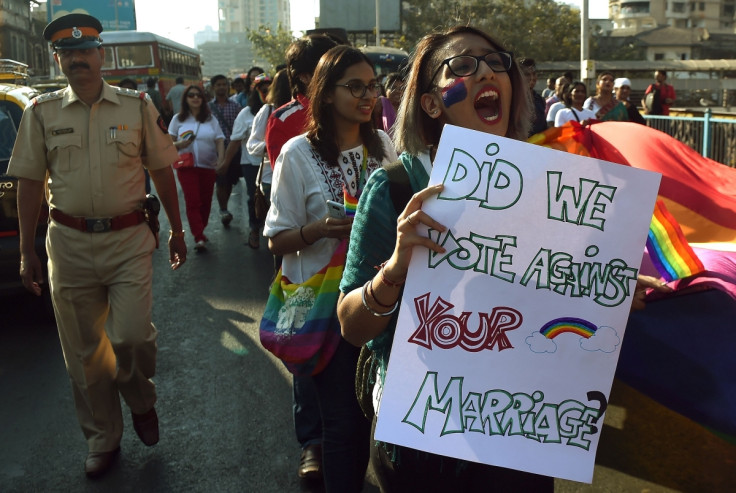UK court rules same-sex Indian couple can be deported despite no legal recognition in India

A court in the UK has rejected a request from an Indian lesbian couple to continue living in Britain, despite the fact that India's laws would not recognise their marriage. The two women have lived legally in the UK since 2007, entered a civil partnership in 2008, and converted this into a marriage in 2015.
According to the Guardian, the couple applied to extend their leave to remain in 2011 on the basis that same-sex relationships are not recognised in India. While the UK court of appeal accepted India provides no legal protection for same-sex couples, it ruled that the two women could not resist deportation on those grounds.
Speaking anonymously, one of the women told the Guardian: "My family do not know that I am a lesbian or that I am married. If I return home they will treat me as a single woman and start looking for a suitable husband for me. I won't have any legal protection for who I am because my marriage will not be recognised in India. In India we will both have to hide who we are. In the UK we enjoy our family life together."
One of the women said that if she and her wife were to go back to India, they would not be allowed to live together or see each other. However, the UK court ruled that there was "lack of evidence" to support the notion that the couple would suffer violence if they returned to India and also said that returning them home would not violate their right to a family life.
The appeal court ruled: "The situation in India for lesbians is improving, in part due to the visible public debate as to the rights of same-sex couples. There would be no nullification or flagrant violation of their rights to family life on their return to India."
This is the first case that has seen the UK court of appeal address the issue of migrant same-sex rights versus the UK's economic interests and immigration control. The couple said that they would appeal against the decision to the UK Supreme Court.
© Copyright IBTimes 2024. All rights reserved.






